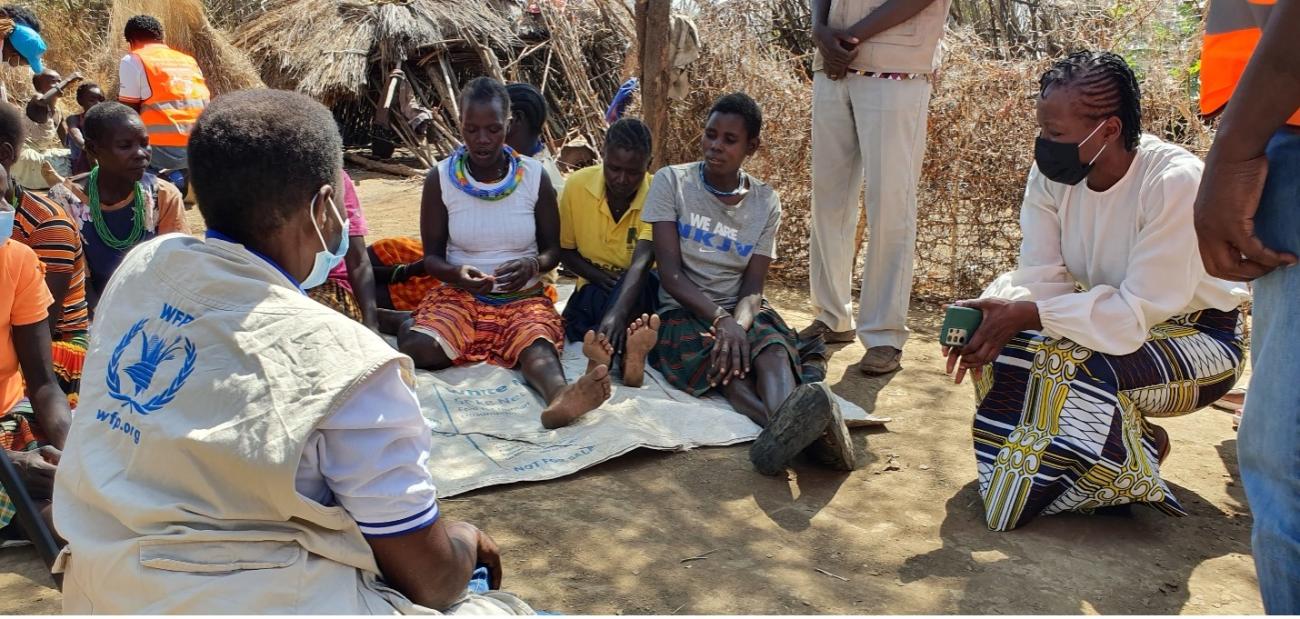Reaching the last mile in Uganda: Decentralised Coordination for impact

Meet Sophie Giovana Akera, one of our National Field Coordinating Officers from the Resident Coordinator's Office (RCO) in Uganda. You may think that as an RCO staff member, she is based in the Ugandan capital, Kampala. But Sophie is currently based in Karamoja, 500 kilometers northeast of Kampala. Her day starts with communicating with other colleagues from sub-regional offices of the UN entities deployed there and updating her RCO colleagues in the capital city. Sophie’s focus on coordination spreads across this northern Uganda. As a Field Officer, Sophie helps facilitate the implementation of the UN Sustainable Development Cooperation Framework (2021-2025); the roadmap agreed between the UN and the Government of Uganda which guides UN activities in the country over a four year period. Sophie also works to build strong partnerships and collaboration between UN agencies in the regions and ensure effective coordination between the humanitarian and development actors at the district and regional level.
Since 2015, the United Nations in Uganda has employed a unique method, called “the United Nations Areas Coordinator (UNAC) System” to guide its development activities and programing on the ground. To adapt to the principles of ‘leave no one behind’ and ‘reach the last mile and the last person’, the RCO has deployed three national UN Volunteers to four regions. This decentralized coordination system, stretching beyond the four walls of our office in Kampala, is made possible by the generous contribution of the Government of Norway.
National Field Coordinating Officers like Sophie provide real-time updates and share useful information, including on issues of duty of care that are bridging the spatial gap between the UN Resident Coordinator and UN personnel in the field. In addition, the system has enhanced collaboration among partners outside the UN, including district local governments and civil societies, by providing the enabling environment for dialogue, planning, and decision-making faster than ever before.
In addition to Sophie deployed in Karamoja, two other officers are stationed in field offices ranging from northern Uganda, southwest Uganda to the West Nile. Since its inauguration in 2015, the coordination system has helped implement the SDGs locally in Uganda, while enhancing the Resident Coordinator's leadership and the effectiveness of the UN Reform Agenda.
The RCO’s sub-regional footprint has strengthened coordination among colleagues from different UN entities to carry out their interventions, including rapid needs-based assessments on pre-determined triggers such as drought, flood and conflict, coordination of joint activities and joint programmes, field monitoring visits, capacity building, prevention of sexual exploitation and abuse and programme implementation. Overall, the system ensures that there is greater coherence, less duplication and stronger impact of the UN’s work, across agencies.
In particular, the RCO has brought the conversation on synergies and deeper interactions between humanitarian and development work across the country, to the field, and it is already yielding substantive results as the focus is now shifting to enhancing sustainability and impact as well as disaster prevention and mitigation. As the UN in Uganda moves towards deepening its engagement with an emphasis on the nexus among humanitarian, development, and peace efforts, the UNAC system will remain an indispensable pivot going forward.
To put it into perspective, this decentralised coordination system is a US$45,000 annual investment which has already delivered huge returns - providing nearly US$900,000 worth of services and savings over the seven years since its inception.
With the support and leadership of the Resident Coordinator, Susan Namondo Ngogi the UN in Uganda will continue to use this effective, decentralised coordination approach to ensure its development programming and interventions go further and leave no one behind.
This story was written by UN Uganda with editorial support from UN DCO.
For more information on the UN’s work in Uganda, please visit Uganda.un.org.













